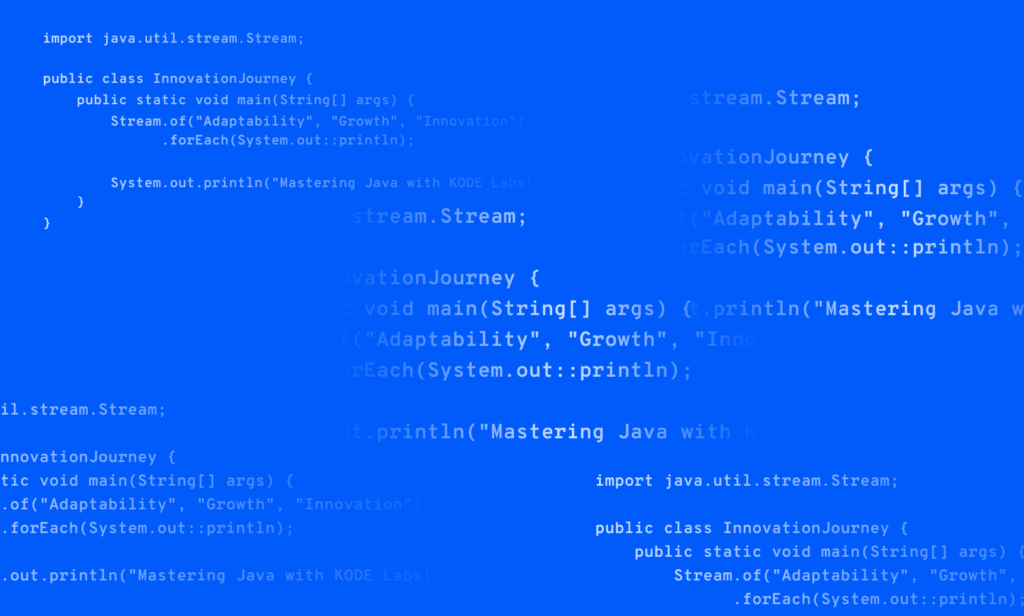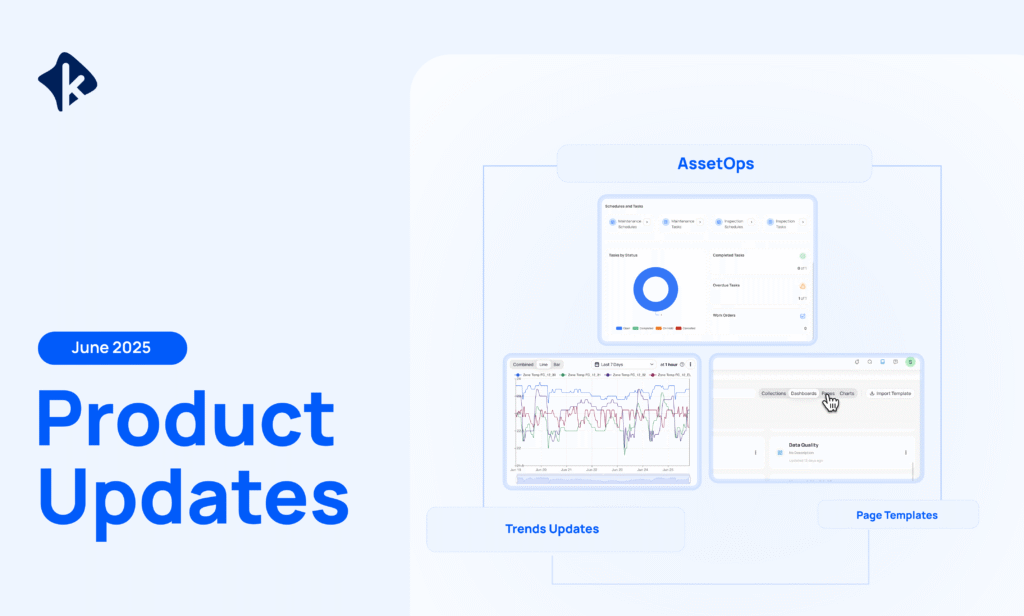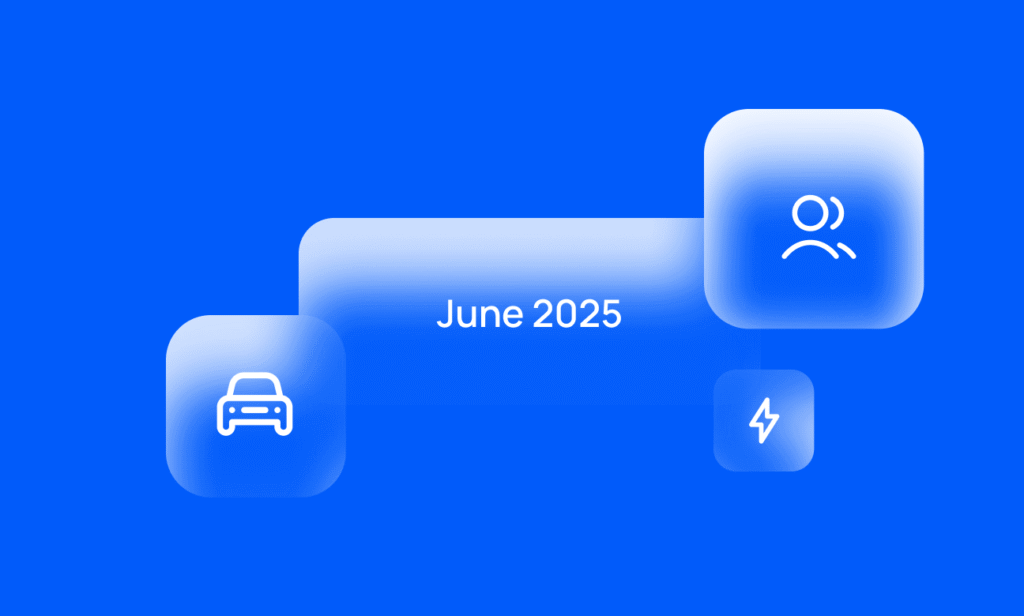On this page
Sign up to our newsletter
Subscribe to receive the latest blog posts to your inbox every week.
By subscribing you agree to with our Privacy Policy.

In my journey through the fast-paced world of software development, I’ve realized that being fluent in multiple programming languages is more than an advantage, it’s a fundamental skill of any successful developer. The ability to adapt isn’t just a badge of honor, but a necessity that opens doors to diverse problem-solving approaches, keeping us in step with the latest trends and helps us create more complex software. It also fosters seamless collaboration within our diverse teams. This kind of flexibility is invaluable, helping developers navigate the ever-changing landscape of our industry.
I remember when I decided to broaden my horizons by moving from .NET to Java. This was because of the opportunity I received from KODE Labs, which got me thinking about the possibilities Java has to offer. If I am very honest, this wasn’t a decision I took lightly.
This transition wasn’t without its challenges, but my eagerness to learn and grow turned these obstacles into opportunities. Adapting to Java’s syntactical differences and its object-oriented nature required a strategy. I dove into online tutorials, engaged in community forums, and collaborated closely with seasoned Java developers. This period of intense learning and skill development, while drawing from my background in .NET, was crucial for my smooth integration into the Java world.
Even though during the first few weeks of the onboarding phase I was basically learning a new language, it was motivating to see that I was not the only one who has gone through this path. Now, whenever I am interviewing candidates who are concerned if KODE is willing to give them some time to switch to Java, I have a perfect example to tell.
Switching to Java was a significant milestone in my development career, offering platform independence and a rich ecosystem that opened up a new level of flexibility. Utilizing comprehensive libraries and frameworks, like Quarkus, made tasks like deployment and rapid prototyping more streamlined. The innovative solutions at KODE Labs offered the perfect environment for this transition, showcasing the adaptability and collaborative nature of Java.
During my journey, Java’s “Write Once, Run Anywhere” philosophy and its support for backward capability became increasingly apparent and very appreciated. Features like these showcase Java’s broad adaptability and enduring nature, reinforcing that this transition has been an important milestone in my career as a software developer.
Elevating Java development: Mastery, challenges & continuous learning
In my journey through different areas of software development, the combination of Java with innovative frameworks like Quarkus, and libraries such as Mutiny, has been truly transformative. Quarkus, for me, stands out for its ability to compile into native images and its real-time coding capability. Supported by a diverse ecosystem of extensions, it’s not just another tool, it’s been a game-changer for our tech stack, perfectly tailored for cloud-native projects fitting seamlessly into microservices architecture. This combination has significantly speed-up our development workflow and optimized the efficiency of our resources.
Java, in my eyes, has become an essential tool in our arsenal against the different challenges of development. Its broad language appeal, enriched by deep libraries and solid error detection, lays down a solid foundation. The object-oriented essence of Java has streamlined my approach to creating organized and maintainable code. Meanwhile, the built-in support for concurrency has greatly enhanced our ability to multitask effectively across projects. Java’s expansive ecosystem encourages not just problem-solving but does so with a heavy emphasis on security and scalability. Through its continuous updates, Java has remained both relevant and reliable.
For me, ensuring the delivery of scalable, high-quality code hinges on a rigorous adherence to best practices and recognized coding patterns. Regular code reviews, leaning into automated testing and upholding strict coding standards have become cornerstones of my process. Because these practices have been instrumental in elevating the quality of the software we produce, I always encourage my team to upload the same process.
On the other hand, engaging with the latest Java features and contributing to open-source projects keeps me always learning new things. This engagement ensures that I am well prepared and ready to face the future challenges head-on.
Navigating professional challenges & cultivating success at KODE
At KODE, tackling unique challenges is part of our daily routine, especially when it comes to smart building projects that demand scalable and secure software solutions. The strength of Java and its frameworks has been crucial in this arena. It’s not just about the programming language, it’s about how Java’s adaptability allows us to seamlessly integrate with various systems. This isn’t just ensuring our solutions work today but also that they’re prepared for the future.
But Java’s importance at KODE goes beyond its technical capabilities. It forms a basis of our technology framework, driving us toward delivering enterprise-level performance. Java is our go-to tool for crafting scalable solutions and deploying them smoothly in the cloud. Our platform’s success is dependent not just on our coding skills but on laying a solid groundwork that supports future innovations.
When it comes to career development, at KODE, we see it as a journey unique to each team member, highlighted by a tailored onboarding process and continuous opportunities for personal and professional growth. We believe in mentorship, pairing newcomers with experienced software developers who can share insights into our work culture and help foster a sense of community. This has truly been impactful in my transition. At the center of our approach is the exploration of new technologies and methodologies, fueling creativity and innovation. This philosophy hasn’t just accelerated my personal growth, it has pushed the standards of our collective work, cementing our position as industry pioneers. At KODE, innovation and exploration are more than just concepts, they’re pillars of our growth and teamwork. That’s the essence of how we advance together.




